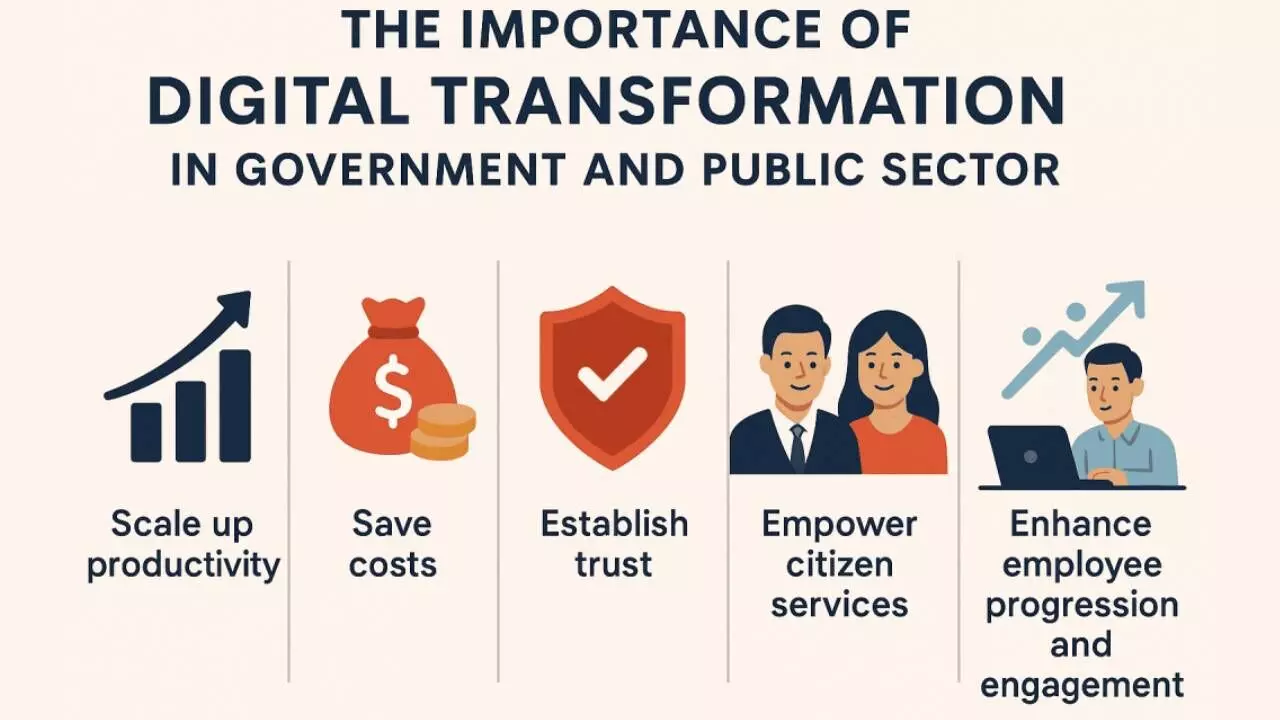Civil service role in driving digital transformation highlighted
Platforms such as e-Office, integrated dashboards, grievance redressal systems, and data visualisation tools are strengthening efficiency, accountability, and transparency
image for illustrative purpose

Visakhapatnam: The 28th National Conference on e-Governance (NCeG) 2025, at a plenary session on “Civil Service and Digital Transformation” harped on the role of civil servants in acting as a catalyst for change.
The session was chaired by Rashmi Chowdhary, Secretary of the Central Information Commission. The panel included senior administrators from across the country including Mona Khandhar, Principal Secretary, Food, Civil Supplies & Consumer Affairs Department, Government of Gujarat, Babu A, Chief Commissioner of State Taxes, Andhra Pradesh, Seeram Sambasiva Rao, Special Secretary, Electronics and IT Department, Kerala, Dr. Piyush Singla, Secretary, IT Department, Jammu & Kashmir and Puneet Yadav, Additional Secretary, Department of Administrative Reforms and Public Grievances, Government of India.
The session focused on how digital transformation is reshaping civil services by equipping administrators with tools for real-time monitoring, predictive policymaking, and enhanced service delivery. Platforms such as e-Office, integrated dashboards, grievance redressal systems, and data visualisation tools are strengthening efficiency, accountability, and transparency.
The discussion highlighted that embedding technology into governance enables civil servants to deliver citizen-centric outcomes while bridging geographical, linguistic, and socio-economic gaps.
Chairperson Rashmi Chowdhary emphasised the importance of citizen-centricity in governance. She highlighted how digital tools such as iGOT and Mission Karmayogi support online training and skilling, GIS platforms like Bhuvan assist in urban planning and flood monitoring, and data visualisation tools such as Power BI and Tableau enable evidence-based policymaking.

